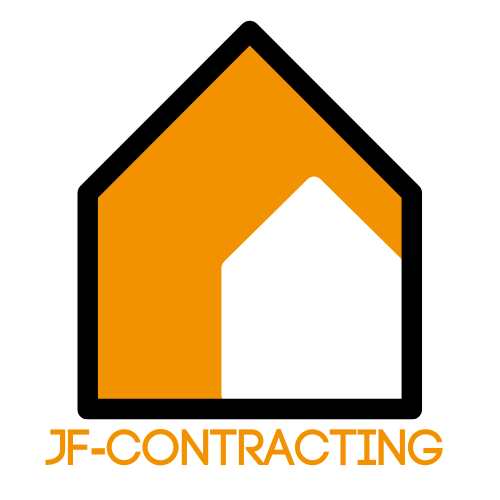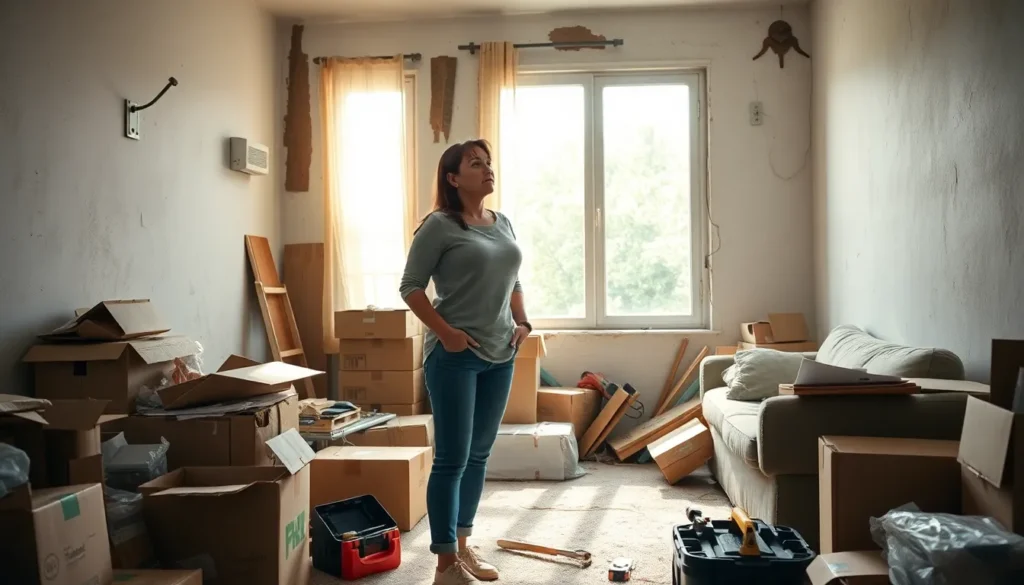When major repairs hit a rental property, it can feel like a scene straight out of a sitcom—walls coming down, dust clouds rising, and the landlord suddenly vanishing like a magician. But amidst the chaos, it’s crucial for tenants to know their rights. After all, they shouldn’t have to live in a construction zone without a clue about what’s happening or how long it’ll last.
Understanding Tenant Rights During Major Repairs
Tenants possess specific rights when their rental property undergoes major repairs. Knowledge about these rights ensures tenants maintain a safe and livable environment. Local and state laws frequently guide these rights, with many jurisdictions requiring landlords to adhere to proper repair protocols.
Information about repair timelines should be communicated clearly to tenants. Often, landlords must provide notice before substantial work begins, typically 24 to 48 hours in advance. Informed tenants can prepare adequately for any disruptions, allowing them to minimize inconvenience during the repair period.
Safe conditions become a top priority during major repairs. Tenants have the right to request that repairs be performed in a manner that does not endanger their health or safety. If hazardous conditions arise, landlords must act to remedy these situations promptly, ensuring the well-being of all residents.
Tenants can also expect reasonable access to their living spaces. While landlords may need entry for repairs, they cannot disturb tenants excessively. Tenants reserve the right to quiet enjoyment of their homes, which protects them from unnecessary disruptions and discomfort.
In some scenarios, rent abatement may occur. Depending on the severity and duration of the disruption caused by repairs, tenants might be entitled to a reduction in rent. Legal recourse remains an option for tenants dealing with unresponsive landlords, often necessitating documentation of the issues faced during repairs.
Understanding these rights empowers tenants. Empowered individuals can address repair concerns confidently and ensure their living situation meets acceptable standards.
Legal Framework for Tenant Rights

Tenants must navigate a legal framework that protects them during major repairs. Understanding these laws helps ensure a secure living environment.
Federal Laws
The Fair Housing Act prohibits discrimination based on race, color, national origin, religion, sex, familial status, and disability. This act mandates that properties remain safe and livable. The warranty of habitability is also crucial; it obligates landlords to maintain basic living conditions. It includes keeping plumbing functional, maintaining heating and air conditioning, and ensuring electrical systems work. The U.S. Environmental Protection Agency enforces regulations regarding lead-based paint disclosures, especially in pre-1978 properties. If unsafe conditions arise, tenants can seek recourse through federal channels.
State-Specific Regulations
State laws often provide additional protections and clarify tenant rights. Many states require landlords to give written notice about repairs, typically ranging from 24 to 48 hours before entry. Regulations differ regarding the duration of repairs; some states enforce deadlines for completion. Tenants can report unresponsive landlords to state housing authorities if issues remain unresolved. State legislation also varies in stipulating tenants’ rights for rent abatement when repairs disrupt living conditions significantly. Access to legal aid is frequently available, offering crucial support for those facing serious issues.
Responsibilities of Landlords
Landlords bear specific responsibilities during major repairs, ensuring tenant rights are upheld throughout the process.
Duty to Maintain Property
Landlords must maintain properties according to local codes. Essential services, including plumbing, heating, and electrical systems, require constant attention. Promptly addressing significant repairs helps maintain a safe and habitable environment. They can’t ignore issues that affect tenants’ health or safety. When landlords neglect these duties, they risk legal repercussions, including eviction or rent abatement claims.
Notice Requirements for Repairs
Notice requirements vary by state, mandating landlords inform tenants about repairs. Typically, landlords must provide 24 to 48 hours’ notice before commencing significant work. Clear communication allows tenants to prepare for disruptions. Notices should include information about the nature of repairs and expected duration. Failure to provide adequate notice may lead to tenant complaints or legal actions against landlords.
Tenant Responsibilities
Tenants play a critical role during major repairs. Understanding these responsibilities ensures both rights and obligations are met appropriately.
Reporting Issues Promptly
Reporting maintenance issues promptly is essential for tenants. Delaying notifications can worsen problems and lead to more significant damage. Communicating concerns to landlords immediately prevents further complications and keeps the property safe. Tenants should document issues, including photos and dates, to provide clear evidence when needed. This approach not only encourages landlords to act faster but also helps establish a record of communication. When problems remain unaddressed, tenants can escalate the matter to local housing authorities.
Allowing Access for Repairs
Allowing access for repairs is a necessary responsibility. Tenants should be cooperative when landlords or repair personnel need entry to the rental unit. Advance notice, typically 24 to 48 hours, is standard for scheduled repairs. Respecting this process helps maintain a cooperative relationship between tenants and landlords. If unexpected repairs occur, tenants must still provide reasonable access, ensuring essential services are restored swiftly. It’s beneficial for tenants to communicate any scheduling conflicts with landlords, promoting effective coordination throughout the repair process.
Common Major Repairs and Tenant Rights
Understanding tenant rights during major repairs ensures a secure and comfortable living environment. Tenants need clarity on common major repairs and the associated rights.
Plumbing and Electrical Issues
Plumbing issues can range from leaking pipes to complete system failures. Tenants possess the right to timely repairs, ensuring safe water access and sanitary conditions. Landlords must respond promptly, typically within 24 to 48 hours, to address plumbing emergencies. Electrical issues, like faulty wiring or inadequate power supply, also require immediate attention. Tenants may request regular updates on repair timelines, which landlords must provide. If repairs extend beyond a reasonable duration, tenants might seek rent reductions based on disruption severity.
Structural Repairs
Structural repairs encompass essential elements such as roofing, walls, and foundations. Tenants must be notified in advance, typically 24 to 48 hours, before accessing their units for these repairs. Safety standards must be met, as tenants have the right to a livable space. Invasive repairs can disrupt daily life, making clear communication crucial. Tenants should document repair timelines and communications for future reference. If landlords fail to uphold these standards, tenants can escalate concerns to local housing authorities for resolution.
Tenant rights during major repairs are vital for ensuring safe and livable conditions. By understanding these rights tenants can navigate the complexities of repair situations with confidence. It’s essential for tenants to communicate effectively with their landlords and document any issues that arise.
This proactive approach not only helps in expediting repairs but also establishes a clear record should disputes occur. Landlords have legal obligations to maintain properties and provide timely updates. When tenants are informed and assertive, they can protect their living environment and advocate for their needs effectively.










